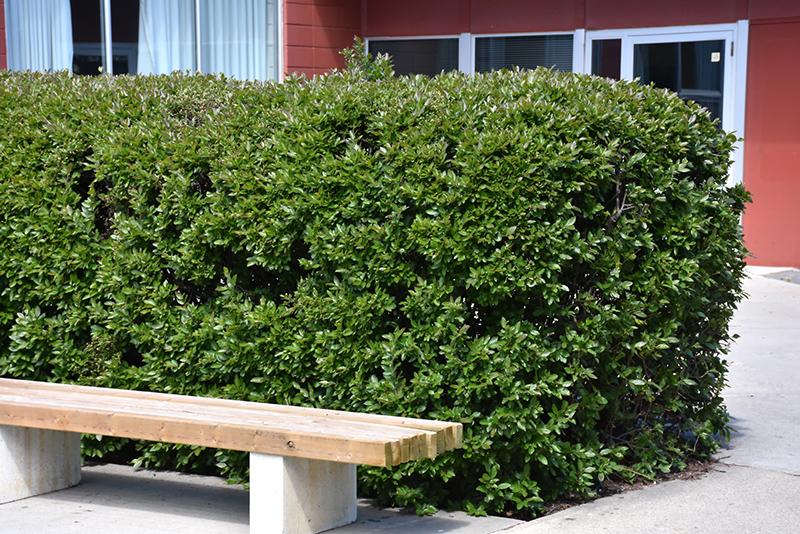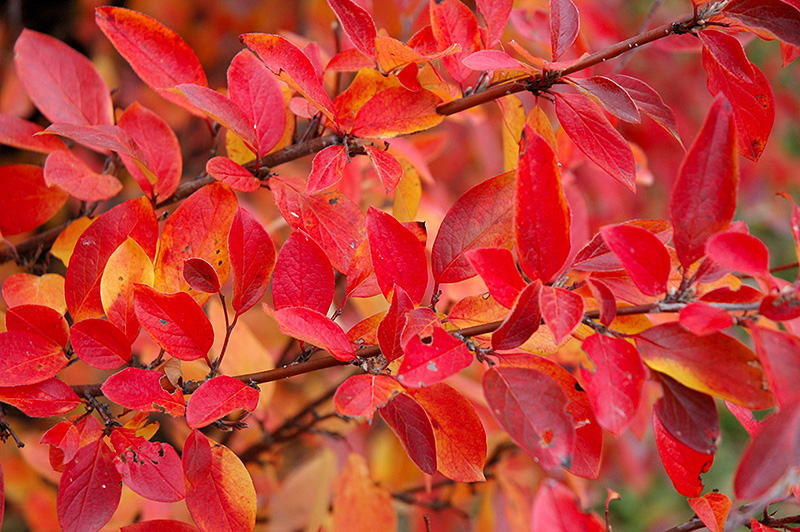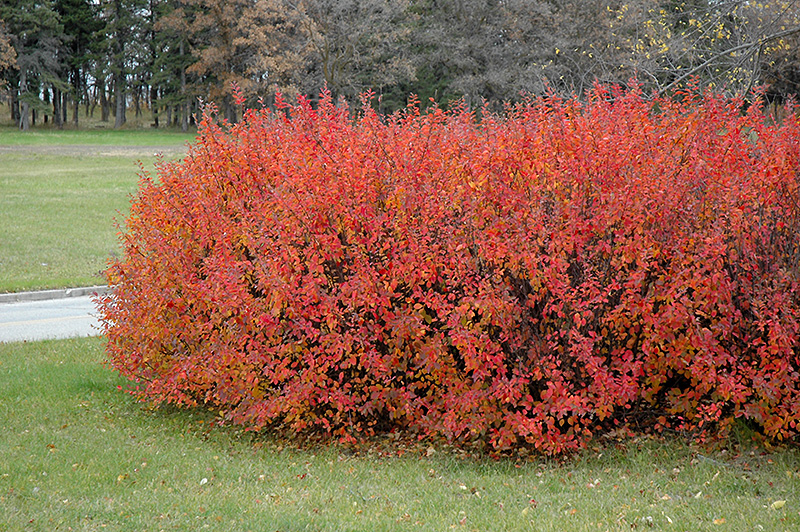Plant Finder
Height: 8 feet
Spread: 8 feet
Sunlight:
![]()
![]()
Hardiness Zone: 2
Other Names: Peking Cotoneaster
Description:
Known as the 'hedge cotoneaster' for very good reason; makes a stunning hedge, takes pruning well; also valued for its showy fall colors; one of the toughest and hardiest of this genus
Ornamental Features
Hedge Cotoneaster has clusters of shell pink flowers along the branches in mid spring. It has dark green deciduous foliage. The glossy oval leaves turn an outstanding scarlet in the fall.
Landscape Attributes
Hedge Cotoneaster is a multi-stemmed deciduous shrub with a more or less rounded form. Its average texture blends into the landscape, but can be balanced by one or two finer or coarser trees or shrubs for an effective composition.
This is a relatively low maintenance shrub, and can be pruned at anytime. Gardeners should be aware of the following characteristic(s) that may warrant special consideration;
- Insects
- Disease
Hedge Cotoneaster is recommended for the following landscape applications;
- Mass Planting
- Hedges/Screening
Planting & Growing
Hedge Cotoneaster will grow to be about 8 feet tall at maturity, with a spread of 8 feet. It tends to fill out right to the ground and therefore doesn't necessarily require facer plants in front, and is suitable for planting under power lines. It grows at a medium rate, and under ideal conditions can be expected to live for approximately 30 years.
This shrub does best in full sun to partial shade. It is very adaptable to both dry and moist locations, and should do just fine under average home landscape conditions. It is not particular as to soil type or pH, and is able to handle environmental salt. It is highly tolerant of urban pollution and will even thrive in inner city environments. This species is not originally from North America.
A NetPS Plant Finder tool



